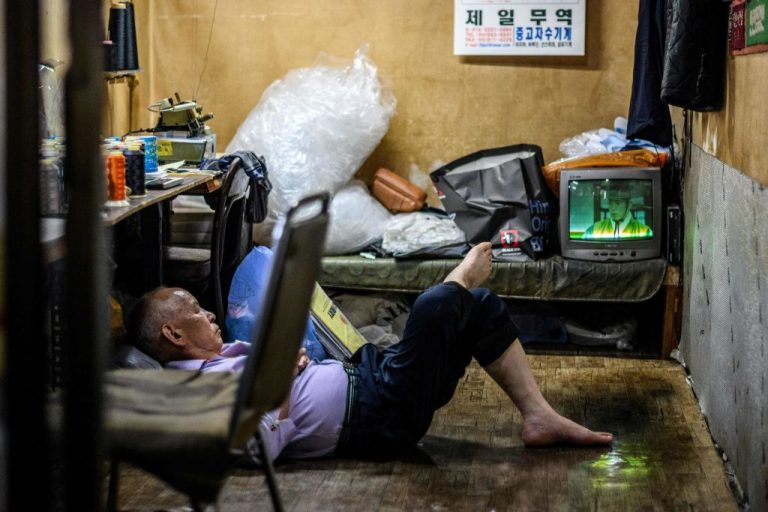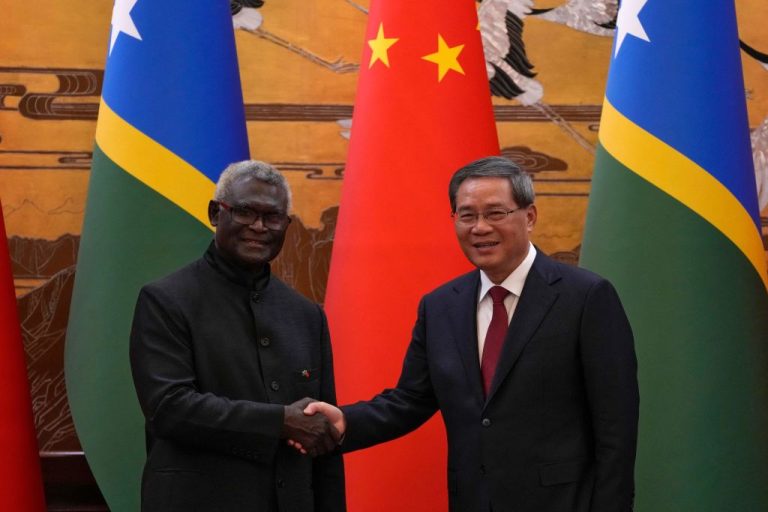The largest companies in South Korea, home of many of the world’s leading electronics manufacturers, are sitting on a massive pile of inventory they can’t find buyers for as the world enters a recession for the first time in decades.
The Korea Economic Daily (KED) said on July 6 that based on data from the Financial Supervisory Service and Korea Investors Service Inc., both of which are subsidiaries of Moody’s, the top 30 companies in Korea by market capitalization are holding 39.2 percent more inventory than they did a year ago.
The basket includes names as big as Samsung, LG, and Hyundai Motors.
Hyundai Research Institute Senior Economist Joo Won told KED in no uncertain terms that because consumer spending is “sharply falling,” the situation is “likely to put pressure on corporate profits and investor sentiment.”
Over the course of 2021’s unprecedented bull market combined with a supply chain crisis and a massive boom cycle across many commodities sectors, manufacturers ramped production to keep supply commensurate with post-COVID demand.
Success
You are now signed up for our newsletter
Success
Check your email to complete sign up
South Korea, much like the United States and Canada, has been hit by staggering inflation, posting a 6 percent consumer price index increase in June, the worst since the Asian Financial Crisis of ‘98.
Some of the inventory bloat is exceptional. Notably, Samsung reported sitting on a 55.4 percent yearly increase, amounting to a total liability of 47.6 trillion won ($36.6 billion USD approx).
Competitor LG faced a lesser glut amounting to a 27.7 percent current year increase worth only 10.2 trillion won ($7.8 billion), but semiconductor manufacturer SK Hynix is sitting on more than 68 percent more inventory than it did last year, worth about the same amount.
A manager at one outlet of the country’s largest electronics retailer, Lotte Himart, which boasts a six story building, complained to the outlet, “Customers spent more on home appliances during COVID-19 but we have a completely different situation now.”
“We are falling off the cliff, I feel, because of weak sales.”
KED noted that the store was notably empty even on a Sunday in the middle of summer.
An unidentified “senior executive at a major electronics producer” was candid enough to tell KED the obvious about what this meant for the sector, “We have no choice but to cut prices in order to defend market share although we know we are losing money.”
The data is congruent with that from the country’s memory chip sector issued at the end of June, which showed that the industry’s inventory levels ballooned 53.4 percent year over year.
South Korea is the largest producer of memory chips in the world. The last time the industry posted such an expansion was in March of 2018 just before sector growth notably slowed.
Last month, U.S. based retailers such as Target, Walmart, and Amazon all likewise posted inventory figures featuring very high year over year increases.
One of the worst was Amazon, who was holding 46.7 percent more stuff while suffering from a sales growth of merely 7.58 percent.
In May, Bloomberg reported that the online distributor of “stuff” was looking to sublet 10 million square feet of warehouse space, which amounted to the equivalent of 12 of its largest distribution centers.
South Korean media outlet Chosun reported that the Bank of Korea is considering following the lead of most other major nations with a steepening interest rate hike of 50 basis points during a key policy meeting next week.
The BOK has what is nearly a tradition of only hiking 25 basis points, Chosun stated, “If the BOK hikes the key rate by half a percentage point, the impact will be far greater than the usual 0.25 percentage point increase. In its 72 years of existence, the central bank has never raised interest rates by more than that.”
The outlet pondered that the Bank must take escalating action as the Federal Reserve is forecasted to hike rates an additional 75 basis points during the July Federal Open Market Committee meeting following an outsized hike of the same size in June after America posted an 8-handle consumer price index for May.
Chosun also noted that the Won is also devaluing at an alarming speed, having broken the 1,300:1 USD exchange rate for the first time since 2009 this month.
According to the article, the government has been dumping its foreign reserves in a desperate bid to stabilize its currency, but the result is that it brought its foreign reserves down nearly $10 billion USD in June, the biggest lost since the 2008 financial crisis.
The recent chaos in Sri Lanka is a notable case study in the perils of losing foreign reserves.
The nation, which more or less only exports tea and has made due by collecting dollars through tourism and through citizens working overseas and sending various foreign currencies home, has run out of foreign reserves, resulting in its currency losing nearly half its value overnight and at the same time being unable to purchase oil because it lacks the U.S. petrodollar to do so.
















